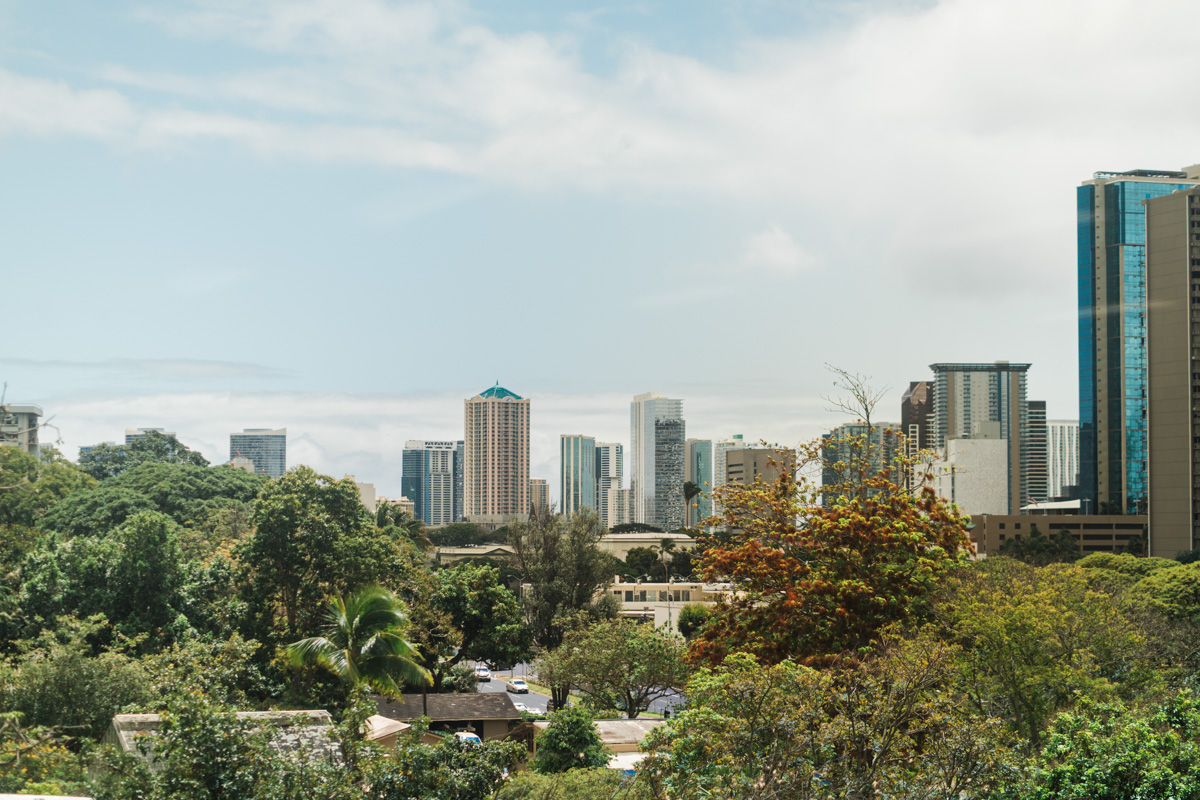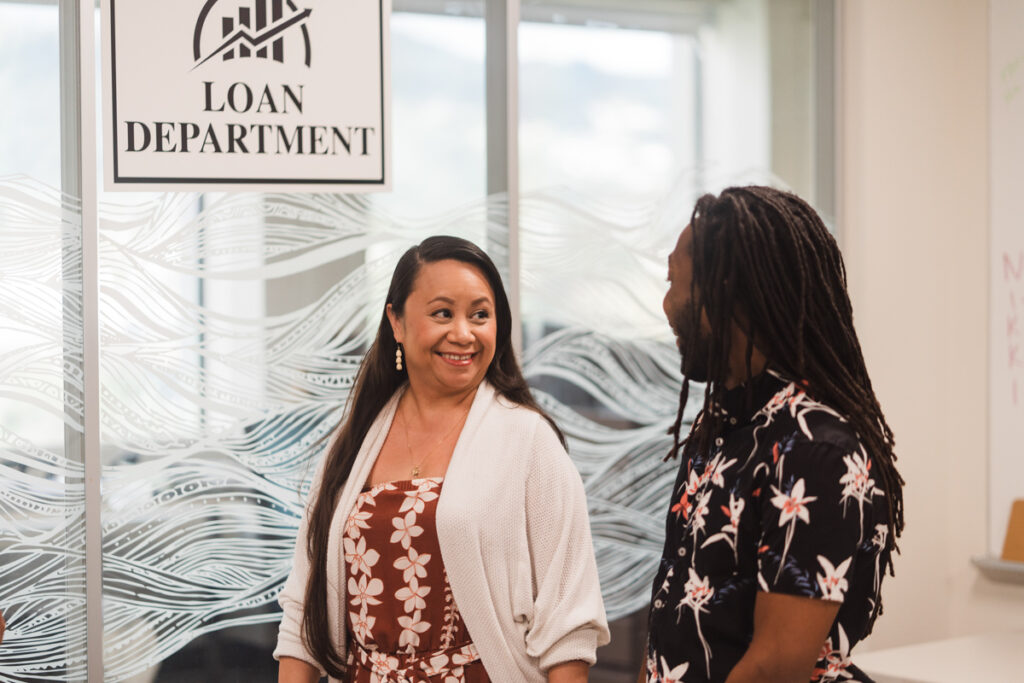AUW ALICE Initiative
The AUW ALICE Initiative aims to highlight and address the financial struggles of working households that earn above the Federal Poverty Level but still cannot afford the basic cost of living in Hawaiʻi.

Asset Limited, Income Constrained, Employed
Many individuals and families who have a job – even two or three – are doing everything they can to make ends meet but are still living paycheck to paycheck.
ALICE represents the large number of households who are working yet cannot afford basic necessities to remain stable and self-sufficient. ALICE Households are above the Federal Poverty Line, but they do not qualify for many government assistance programs.
Aloha United Way’s ALICE Initiative
Aloha United Way leads the ALICE Initiative in Hawaiʻi – This initiative is a comprehensive strategy aimed at generating awareness around what ALICE households face, and driving long-term, systemic change towards greater financial stability in Hawaiʻi.
Through the collective work of our partners and sponsors, The ALICE Initiative provides resources for ALICE Households, as well as data and tools to inform policy and drive systemic change in Hawaiʻi.
“Aloha United Way is a leader in the ALICE movement – boldly inspiring an era of change in Hawaiʻi. Across the state, community members, foundations, legislators, and businesses are working together to build out a wide range of solutions that help their ALICE workers and families become financially stable.”
— Stephanie Hoopes, PhD | National Director of United For ALICE
ALICE in Hawaiʻi: 2024 Facts and Figures
The 2024 AUW ALICE Facts and Figures Report, released January 2025, provides a revealing look at the financial struggles faced by Hawai‘i’s ALICE households, highlighting the urgent need for systemic change to address rising living costs, housing instability, and economic challenges.

Identifying ALICE
ALICE may be your relative, friend, colleague, or neighbor, or you might be ALICE. ALICE may also be your health care provider, teacher, retail clerk, sanitation worker, and others. ALICE workers are the backbone of our economy, with the pandemic making it crystal clear just how much we need them.
- Span all races, ages, ethnicities, and abilities, though households of color are disproportionately ALICE
- Include workers whose wages cannot keep up with the rising cost of goods and services
- Often include those who are working two or more jobs and still cannot pay their bills
- Include family members who need care and assistance, which makes it harder for their caregivers to find adequate work
- Live paycheck to paycheck and are forced to make impossible choices: pay the rent or buy food, receive medical care or pay for child care, pay utility bills or put gas in the car
- Are part of every community nationwide
Meet ALICE
The AUW ALICE Initiative isn’t about statistics, it’s about helping the real people in our community thrive.
We asked 30 random individuals from all walks of life to participate in an activity to help bring better awareness and understanding to who ALICE is.
Watch our ‘Faces of ALICE’ video to meet ALICE in person.
Why Understanding ALICE Matters
Nearly half of Hawaiʻi’s residents are struggling, with 33% identified as ALICE and 11% living under the Federal Poverty Line (2024 ALICE Report). Every day, on every island, and represented among every ethnicity, local households are faced with tough financial decisions and challenges.
ALICE households are our neighbors, ʻohana, work colleagues, and friends. With high inflation, the rising cost of living, and stagnant wage growth — further exacerbated by the COVID-19 pandemic — unprecedented strain has been placed on Hawaiʻi’s households.
Little support is in place to prevent ALICE from slipping into poverty or for advancing. It takes just one crisis — such as loss of employment for a short period of time; an unexpected health emergency or car repair; or an increase in monthly rent — to put these individuals and families at even greater risk of long-term problems like chronic health issues and loss of housing.
“The ALICE Initiative should continue and remain at the forefront of the Legislature. EVERYBODY should know who is ALICE! We must continue with this Initiative — it is the voice for our hard-working families here in Hawaiʻi.”
— Grant Partner | 2022 – 2024 ALICE Cohort
ALICE in Hawaiʻi
ALICE Data Provides Invaluable Insights
By understanding the scope and scale of financial hardship, we can develop targeted actions to ensure economic stability and growth for all.
AUW’s Role in ALICE
Representing Hawaiʻi in the national United for ALICE movement, Aloha United Way:
- Provides the organization, funding, and infrastructure to provide Hawaiʻi with statewide ALICE data in the form of ALICE Reports and ALICE Dashboards.
- Established the AUW ALICE Fund. Provides grant funding for non-profit organizations that positively impact ALICE households by devising innovative programs and services.
- Convenes community stakeholders around ALICE. From policymakers and business leaders to non-profit organizations and media outlets, AUW brings people together to create maximum social and economic impact.
“We recognize that true collective impact cannot happen overnight. We feel confident in saying that the cohort has made tremendous progress these past two years: building trust and connections across organizations, coming to a better understanding of ALICE and our approach to addressing the broader issues, and understanding opportunities for partnership.”
— Grant Partner | 2022 – 2024 ALICE Cohort
ALICE Resources

Data & Reports
Utilize our latest reports on ALICE data to continue research, initiatives, and legislative advocacy in Hawaiʻi.

Tools & Resources
Access essential tools and resources to support Hawaiʻi’s financially vulnerable families.

Share Your Story
ALICE voices matter. Share your story to help drive change for financially struggling families in Hawaiʻi.

